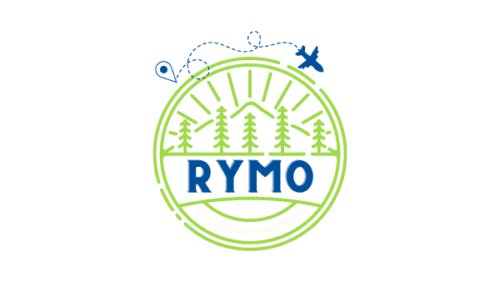RYMO
RYMO (RURAL YOUTH MOBILITY OPPORTUNITIES) aims to create cross-border opportunities for young people with fewer opportunities to improve their socio-economic integration through a mobility project. The objective is to develop opportunities for young people and youth workers living and working in rural areas, so that they are informed and trained to participate in mobility projects and can guide young people towards them.
This project aims to design different innovative training sessions for young people as well as for youth professionals. Thus, young people with fewer opportunities will be equipped to engage and mobilize other young people in their territory.
Background
In all the partner countries, young people living in rural areas are less involved in voluntary activities in their town. There is also a higher rate of unemployment, which can be explained by the lack of mobility. Those who are geographically isolated do not have enough information to participate in mobility programs and they do not know the existing devices to strengthen their skills throughout Europe.
This project was therefore built to bridge the gap between organizations and young people, allowing them to learn about mobility projects so that they can define a different life path, both in their professional and private life.
Objectives
The project partners will therefore undertake the realization of 6 intellectual productions:
- A “first training cycle for professionals” to improve the knowledge of youth workers working on mobility programs and projects
- A “first training cycle for young people” to improve the knowledge of young people with fewer opportunities on mobility programs and projects
- A “second training cycle for young people and professionals” to train young people to become mobility ambassadors in their territory and to train professionals to accompany young people to participate in a mobility project
- “Six local centers” that will be relevant structures to constitute a network where young people and professionals can identify, mobilize and orientate young people
- A “mobility guide” for young people, which will contain all the necessary information on the mobility programs and on the local centers that can be identified in each country
- A “pedagogical kit” for youth workers, which will contain all the learning and support methodology with examples of workshops, training and testimonies
Outputs
The project will first of all have an impact on future mobility participants. It will allow to :
- Increase the capacity of people with fewer opportunities to participate in and carry out a qualitative mobility project; support them to enhance their skills
- Assess their key and horizontal competences acquired during their mobility project and thus have a better chance to access a job at the end of the project
- Develop soft skills and self-confidence, but also broaden their horizons and increase their understanding of different cultures.
For the other institutions, the project will
- Develop and improve the overall professional dialogue and exchange (practices, tools) between the different actors of the general public (at local, national and European level) and the organizations working in the youth sector
- Facilitate the development of new partnership projects including new European partners who may never have worked together before.
- Help to be more effective and efficient in preparing participants before they embark on a mobility period.
- Improve the skills and knowledge of youth workers, existing methodologies and pedagogical tools in order to develop new innovative online tools and to foster international mobility.
Public and beneficiaries
The target audience is young people between 16 and 30 years old with fewer opportunities living in rural areas and youth workers who are in contact with these young people on a daily basis.
The RYMO project will directly involve 150 people including 90 young people with fewer opportunities.


